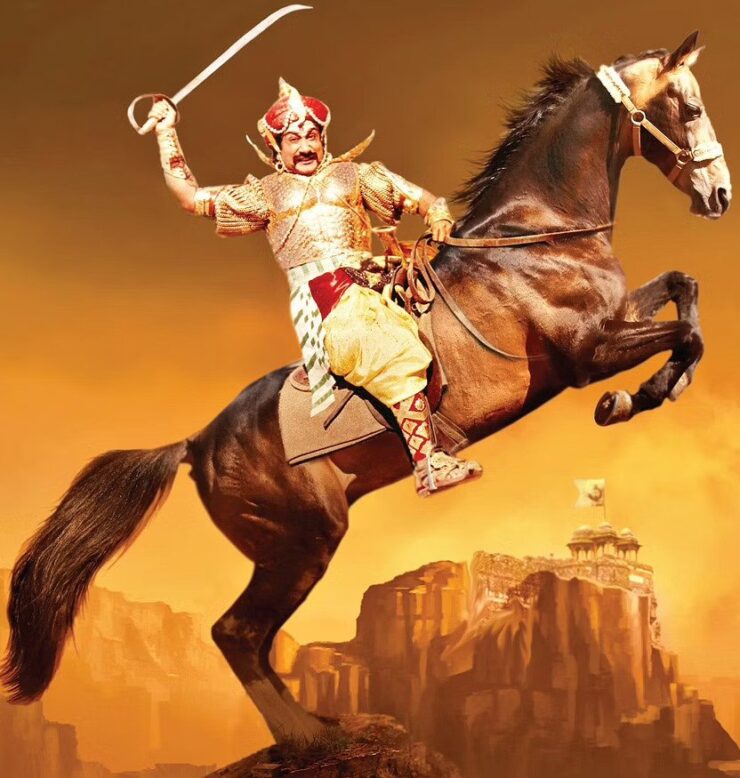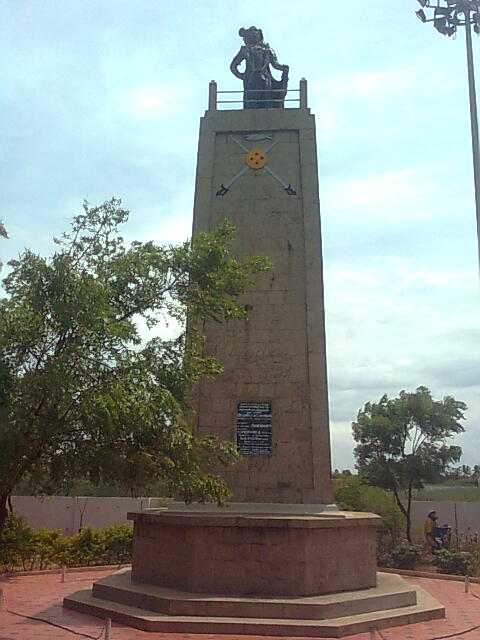
Veerapandiya Kattabomman is a legend in Tamil history. He opposed the British tooth and nail and fought against the East India Company until he was hanged at the age of 39 having been betrayed by the ruler of Pudukottai. Born to Jagaveera Kattabomman and Arumugathammal on January 3 in 1760, Veerapandiya belonged to the Bommu and Aathi Kattabomman clans in the village of Panchalankurichi in Thoothukudi district of Tamil Nadu.
Valiant Tamil chieftain Veerapandiya Kattabomman refused to align with the sovereignty of the East India Company and single-handedly waged war against the colonialists. His father was a Palayakarar, a feudal title for a class of territorial administrative and military governors appointed by the Nayaka dynasty in southern India during the 16th and 18th centuries. At the age of 30, Veerapandiya assumed the position of the 47th Palayakarar.
British tax pressure on Nawab
The East India Company chalked out a shrewd plan by lending huge sums of money to the Nawab of Arcot and demanded to be repaid through taxes and levies from all the Palayakarars under the Nawab’s domain.
During those days, the East India Company was aspiring to establish its control in southern India. The company set up a base in Tirunelveli. As part of its strategy to maintain its control over the region, the company chalked out a shrewd plan by lending huge sums of money to the Nawab of Arcot and demanded to be repaid through taxes and levies from all the Palayakarars under the Nawab’s domain. As the Nawab was in severe debt, he helplessly watched as his people were plundered by the British in the name of tax collection.
Except for Katabomman, every other Palayakarar yielded to the diktat of the company. In fact, the British were quite crafty and tried to establish cordial alliances with all the regional statesmen, who in turn tried advising Katabomman to ally with the former and live in peace. However, the young chieftain refused to relent and resisted all forms of pressure from the British. He openly declared his dissent against the regime and refused to support them in any of their undertakings.
Sudden raid on Panchalankurichi
 In response to Kattabomman’s refusal to bow to British rule, the British army suddenly decided to raid Panchalankurichi under the command of Major J. Bannerman in 1799. As the villagers had gone to Thiruchendur for a temple festival, the British hoped to ambush Katabomman unawares. But he had already learnt of the attack through his informers and had prepared well in advance. Right before the attack, Katabomman was ordered to surrender unconditionally through a messenger sent by Bannerman.
In response to Kattabomman’s refusal to bow to British rule, the British army suddenly decided to raid Panchalankurichi under the command of Major J. Bannerman in 1799. As the villagers had gone to Thiruchendur for a temple festival, the British hoped to ambush Katabomman unawares. But he had already learnt of the attack through his informers and had prepared well in advance. Right before the attack, Katabomman was ordered to surrender unconditionally through a messenger sent by Bannerman.
Kattabomman replied, “We are the sons of this soil. We live with prestige, honour and dignity and we let our souls die for the prestige, honour and dignity of our land. We don’t bow down to the foreigners. We will fight until death.” He and his men held the fort valiantly against British troops, who could not match their expertise and had to withdraw.
However, Kattabomman knew that his fort would not be able to withstand the onslaught of the British were to unleash their cannons. That night, he left the fort with his men and took refuge in the forests of Thirukkalambur close to Pudukottai. Upon receiving information about their hideout, the British threatened the king of Pudukottai, Vijaya Raghunatha Tondaiman, to trace and hand over the elusive chieftain or face similar consequences.
King forced to arrest Kattabomman
The king buckled under pressure and sent his soldiers to track down Kattabomman, who was subsequently arrested at Kayathar on October 1, 1799. Following an interrogation stretching over 15 days and a ridiculous trial, he was sentenced to public execution.
Even in the face of death, Kattabomman didn’t flinch and continued to stand by his ideals of honour, dignity and prestige. He boldly argued for the right of his homeland and admonished the British for their immoral and illegal occupation of the region.
Kattabomman was hanged on October 16, 1799, thus putting an end to the first-ever known revolt against the Empire. The remnants of his old fort at Panchalankurichi are protected by the Archaeological Survey of India. On October 16, 1999, a postage stamp commemorating the bicentenary of Veerapandiya’s execution was released by the Indian government in his remembrance.
– The writer is a senior journalist and media consultant. The views expressed are of the writer and do not necessarily reflect the views of Raksha Anirveda















